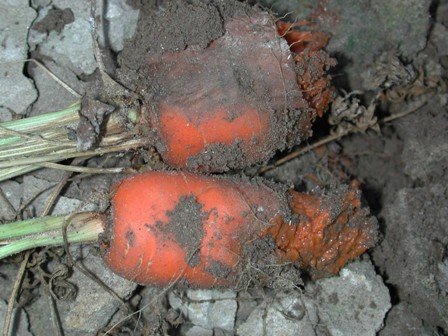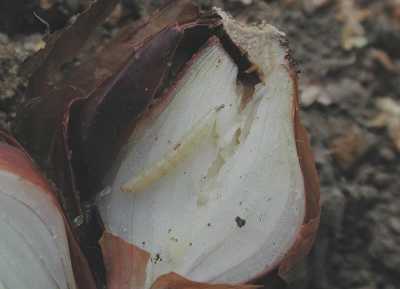(Erwinia carotovora subsp. carotovora)
Credits: Biovision-Infonet

(c) Oregon State University

(c) Jarmo Holopainen
This is a big cause of loss in storage onions. Bacteria Erwinia carotovora subsp. carotovora) can enter the neck tissue as plants mature and then invade one or more scales. At this stage, the affected tissues are water-soaked and pale yellow to light brown. As the rot progresses, the invaded fleshy scales become soft.
Diseased bulbs can be diagnosed by pressing on the bulb: a watery, foul-smelling fluid often can be squeezed from the neck of diseased bulbs.
Bacterial soft rot bacteria enter only through wounds. Onion maggots (Delia antiqua) may carry the bacteria and introduce them while feeding. Onions with mechanical injuries, bruises or sunscald under warm, humid conditions are particularly susceptible to bacterial soft rot. Soft rot can affect many vegetables including carrots, celery, potato and parsnip.
What to do:
- Onion tops should be allowed to mature well before harvesting.
- Care should be taken to avoid bruising during harvesting and packing.
- Storage places should be well ventilated to avoid accumulation of moisture on the surfaces of bulbs.
- Onions should be stored at 0 degC and a relative humidity (RH) of 65-70%.